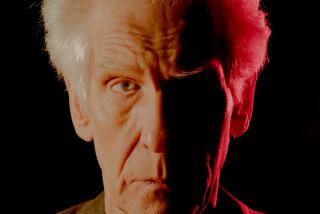Book Review : Reflection on a Scientific Life Lacks the Big Picture
- Share via
For the Love of Enzymes: The Odyssey of a Biochemist by Arthur Kornberg (Harvard University Press: $29.95; 336 pages; illustrated)
Scientists who write autobiographical memoirs face a critical decision at the outset: Should they concentrate on the science they did or on the life they led? The answer they reach probably rests as much on temperament as on any conscious decision, but it determines what kind of book results and to whom it will appeal.
The same question arises in one form or another in all popular science writing. Who is the reader and how much should the writer assume he knows? The trick is to write in a way that satisfies professional scientists as well as interested laymen. Like most ideals, reality almost always falls short of the goal.
It is particularly hard for scientists to write about science for general readers. With several notable exceptions, scientists tend to write too narrowly, assuming too much about their readers’ knowledge and their interest in every jot of the research. Scientists tend to write for other scientists.
Role in DNA Development
Arthur Kornberg, a Noble-Prize-winning biochemist who has played a major role in the development and application of our knowledge of DNA, falls into that trap. His autobiography, “For the Love of Enzymes,” is a well-written history of the field and his role in it, full of explanations of the science itself and clear-eyed observations about the process of research.
Readers will find here the first-rate mind of a first-rate scientist, and there is pleasure in that. It is rare to read such a lucid account of epoch-making science.
But the book is curiously devoid of feeling. Kornberg, a professor of biochemistry at Stanford Medical School, is obviously passionate about his work and about the pleasures of figuring out how nature works. But his book is about science rather than scientists, about problems rather than personalities.
A Thin Chapter
Even his last chapter--”Reflections on My Life and Science”--is surprisingly thin. “It is the essence of scientific discipline to ask small, humble, and answerable questions,” Kornberg writes. “Instead of reaching for the whole truth, the scientist examines small, defined, clearly separable phenomena. The pattern of science is a step-wise extension of what came before. Whereas the doctor must treat the whole patient, and at once, the scientist can isolate the smallest facet that intrigues him and grapple with it for as long as it takes.”
Probably without knowing it, in that paragraph Kornberg reveals much about himself. He is given to understatement rather than overstatement, to small issues rather than large ones, to narrow interpretations rather than broad pronouncements.
In that same concluding chapter, Kornberg chronicles and complains about the anti-Semitism that was endemic and taken for granted in American science a generation or two ago. As a result of it, he was denied admission to all but one of the medical schools he applied to in 1937, when he graduated from City College of New York.
A Commendable Trait
He was accepted to the University of Rochester Medical School, but he was denied an important fellowship and other academic honors after he got there. He tells us he is still angry about this injustice, but his words are measured and show no anger.
Caution is a commendable trait in a scientist, but it is unsatisfying in a life history of a man who has accomplished a great deal as a scientist, teacher, author and department chairman. Perhaps as much as any other researcher, Kornberg has pushed back the frontiers of knowledge about the chemistry of life. His book deals splendidly with that, but it would be a better book if it dealt as splendidly with him.
More to Read
Sign up for our Book Club newsletter
Get the latest news, events and more from the Los Angeles Times Book Club, and help us get L.A. reading and talking.
You may occasionally receive promotional content from the Los Angeles Times.









